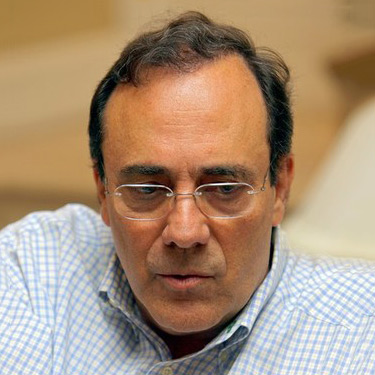I come from a rancorous culture. Cubans have never forgiven the Spaniards for unjustly executing eight medical students at the University of Havana in 1871. Every year, they commemorate that date tearfully and recall that barbarity with speeches blazing with ire. It is not an isolated phenomenon. Throughout America, more or less the same happens. The Mexicans have their “hero children from Chapultepec,” six teenage cadets who died in 1847 defending a military garrison—the castle of Chapultepec—from U.S. invaders. The Paraguayans keep talking about the Triple-Alliance War (1864-1870), when they faced Brazil, Argentina and Uruguay and lost almost every single male who was old enough to hold a knife. Thus, in every country, offenses are not forgotten but are filed away and reviewed periodically, as if nationalism or attachment to a political party needs to feed from such old pains to remain in effect.
Do not think, however, that this peculiar conduct is typical only of Latin Americans. Perhaps it is a universal rule. The Arabs have even a stronger sense of historical rancor. The reasons why the Shiites and Sunnis kill each other have their origin in an obscure argument over succession that began in the 7th Century and is hard to explain convincingly at this time. In Spain, the same happens, although with less virulence: there are Castilians who claim the country’s decadence began with the enthronement of the House of Austria in the 16th Century, while many Catalonians insist that the mother of all misfortunes was the beginning of the centralist dynasty of the Bourbons in the early 18th Century and the Nueva Planta Decrees issued by Philip V to weaken the Catalonian identity. Even today, one of the ways in which the Zapatero government keeps its socialist hordes busy is by rummaging into the slaughter of the 1936 Civil War in search of a forever dim “historical truth.”
Is there a culture that does not cultivate historical rancor? Probably those that branched out of the British tree. The United States, for example. The realization came to me as I read a history of the American political formations. Today, the great majority of the native Americans—those of Indian origin—and African-Americans vote for the Democratic Party, even though in the past both minorities were the victims of ferocious abuses perpetrated by the political leaders of that organization. The contentious Andrew Jackson (1829-1837), who was loved (and hated) as few other Democratic presidents were, not only was a slave owner but also treated, mistreated and expelled the Indians from his land in a manner that today we would call genocidal.
On the other hand, the Republican Party, the party of Lincoln, was the defender of blacks during the Civil War, the party that decreed an end to slavery and later proposed Constitutional amendments 13, 14 and 15, which granted civil rights to the former slaves and their descendants, against the intense opposition of Democrats. In turn, the Democratic Party of the South was the main supporter of the Ku Klux Klan; today, one of the group’s former members, Robert C. Byrd, is a senator from West Virginia. It was Southern Democratic governors who most fiercely defended racial segregation and opposed integration in schools, forcing Republican President Ike Eisenhower to order a division of paratroopers to enforce the court’s ruling. These circumstances explain why the Rev. Dr. Martin Luther King Jr. at the time chose to vote for the Republicans, not for the Democrats.
It is true that those racist stances by the Democrats began to change during the administrations of John F. Kennedy and—above all—Lyndon B. Johnson in the 1960s, but what’s interesting is not the ability to adapt shown by the leaders of that party; it is the almost absolute lack of consequences at the polls that the past has left in the country’s political present. That pragmatical attitude of indifference to past events (possibly wise and enviable) is almost incomprehensible in our culture. Where does it come from? From Americans’ commitment to the future, I suspect. In Anglo-Saxon culture, the future seems to be the only important tense. The past barely counts. We live burdened by its weight.







